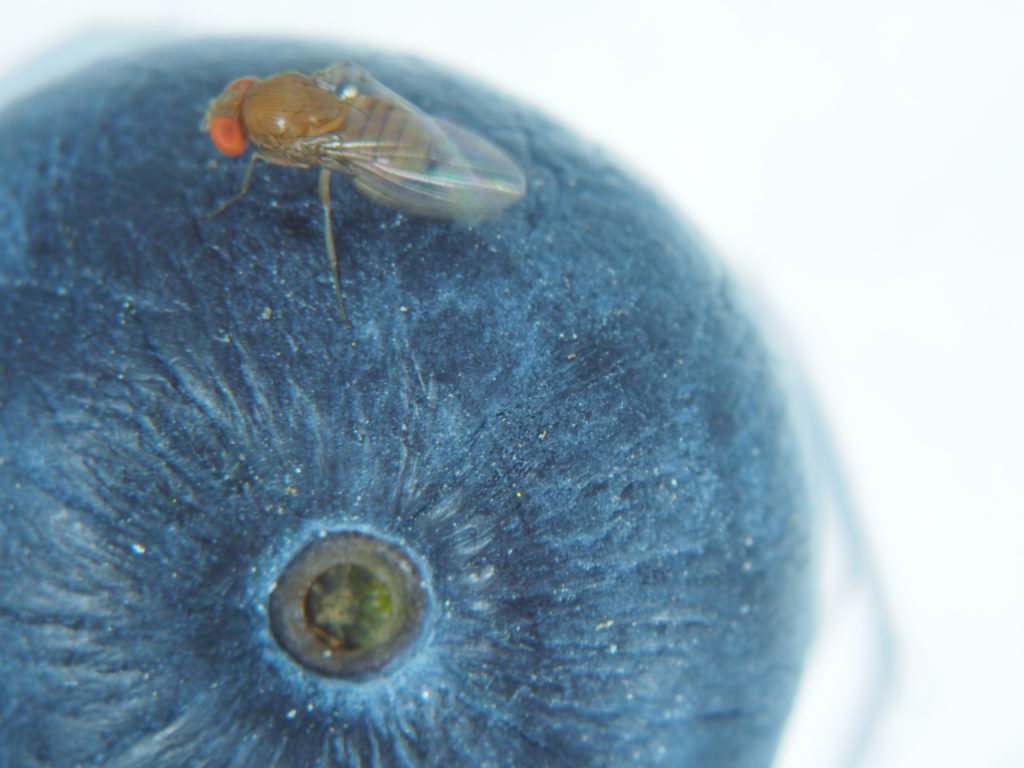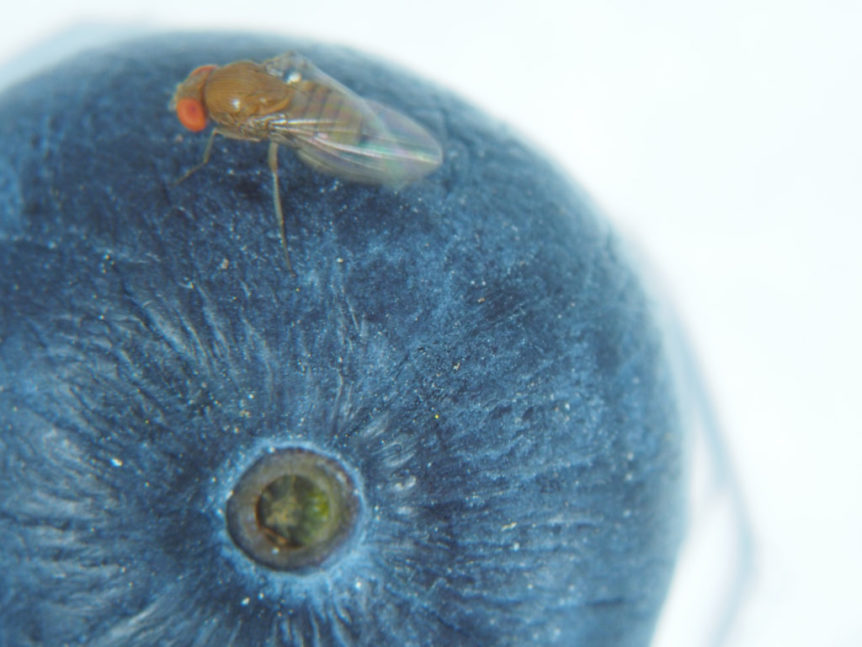
By Clint Thompson
Spotted wing drosophila remains a concern for South Georgia blueberry growers.
Ash Sial, University of Georgia (UGA) entomologist, stressed during the blueberry update held in early January that the best approach in managing the pest is not just a reliance on insecticides. Repeated applications of insecticides can lead to resistance and secondary pests.
“We recommend against just relying on insecticides. Initially when susceptibility was detected in the U.S., we had no other options than insecticides. However, since that time we have worked and developed several other strategies,” Sial said. “We have developed some behavioral control technologies that can be used in combination with insecticides.”
Parasitoids, biological control agents that were imported from Asia, have started to be released. Growers can also implement cultural control strategies that can help minimize the pest populations.
Blueberry growers have a plethora of effective insecticides at their disposal, but they need to rotate with different modes of action.
Wooded areas can serve as population reservoirs for SWD. Multiple wild plant species can serve as hosts for the pest. Adult flies can be trapped at any point during the year.
“Blueberries are its preferred host in this area, but it can survive, develop and grow on several other species. This is what helps them stay active year-round,” Sial said. “Spotted wing drosophila has established in our blueberry growing counties, basically across the state. The extent of damage varies from year to year depending on the weather conditions and also from farm to farm depending on how the surroundings are of the blueberry fields. It is still a key pest.”










